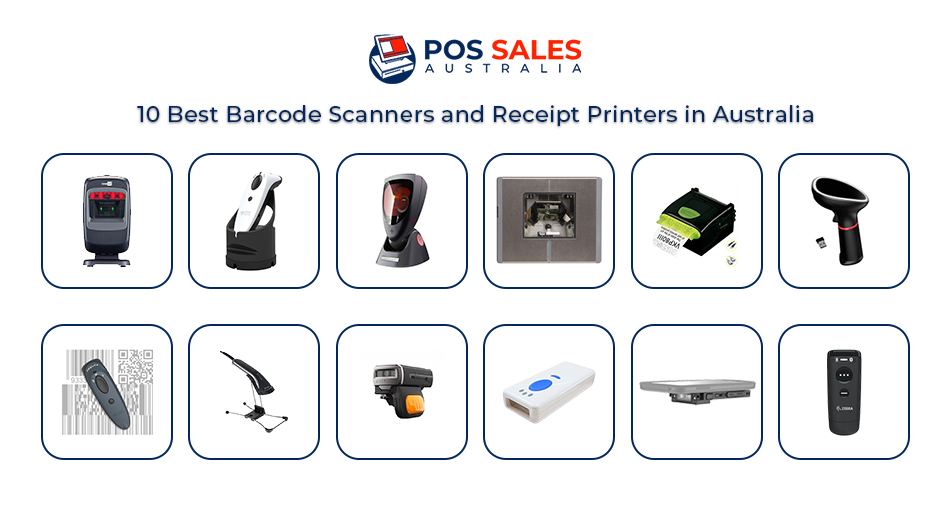Barcodes Scanners Designed for Fast Retail Operations
Barcodes Scanners Designed for Fast Retail Operations
Blog Article
Selecting the Right Barcode Scanner for Your Organization Requirements
Choosing the suitable barcode scanner for your organization calls for a nuanced understanding of your certain operational demands and ecological conditions. Variables such as scanner kind, speed, and compatibility with existing systems play a crucial role in identifying the right choice.
Understanding Barcode Scanner Types
When it involves picking a barcode scanner, comprehending the different kinds available is crucial for meeting certain company requirements. Barcode scanners can be categorized into several kinds, each created for different applications and environments.
Fixed-mount scanners, on the various other hand, are designed for high-volume scanning applications, often discovered in setting up lines or check out counters. These scanners are placed in a fixed setting, allowing for fast scanning of multiple products in sequence.
One more kind is the mobile computer, which incorporates scanning capabilities with computing power. These tools are excellent for field procedures or storehouse management, making it possible for information collection and real-time supply tracking. In addition, there are commercial scanners that are developed to withstand severe environments, such as severe temperature levels or exposure to dirt and dampness.

Key Features to Think About
What necessary attributes should businesses prioritize when selecting a barcode scanner? Firstly, scanning rate is important, as faster scanners improve operational effectiveness, particularly in high-volume atmospheres. The scanner's capacity to review different barcode styles is also important; guarantee it sustains preferred kinds like QR codes, UPC, and Code 128 to fit diverse stock products.
Resilience is one more vital feature, particularly for companies in rugged settings. Look for versions that are developed to endure drops, dust, and moisture. Additionally, take into consideration the connection options available; whether you like USB, Bluetooth, or Wi-Fi, the ideal connectivity can boost assimilation with existing systems.

Assessing Your Service Atmosphere
To effectively select a barcode scanner, businesses need to analyze their certain functional environment. This evaluation includes examining the physical layout of the office, the nature of the products being scanned, and the regular problems under which scanning happens. A retail environment may call for portable scanners that can quickly process deals at the check out, while a storage facility setup could profit from ruggedized scanners designed to endure harsher conditions.
In addition, think about the quantity of scanning called for. High-throughput environments may require sophisticated scanning modern technologies, such as fixed-position scanners or smart phones that can operate effectively in hectic situations. The integration capabilities with existing supply monitoring systems also play a critical role; ensure the selected scanner can flawlessly get in touch with software platforms in operation.
A scanner that meets current needs could not suffice as business expands. By thoroughly assessing these elements, businesses can select a barcode scanner that not just meets prompt requirements but additionally supports long-term functional efficiency and flexibility. barcodes scanners.
Budgeting for Your Scanner
Having assessed the functional environment and recognized the particular needs for a barcode scanner, the following action entails cautious budgeting to Clicking Here ensure a wise financial investment. Developing a budget starts with establishing the general expenses connected with the scanner, including preliminary acquisition cost, functional expenditures, and prospective upkeep fees.
When picking a barcode scanner, take into consideration the variety of available choices, from handheld devices to fixed-position scanners, as prices can differ considerably. It is important to balance price with functionality; selecting a more inexpensive design might lead to boosted functional inefficiencies if it does not meet your service demands.
In addition to the hardware, consider prices related to software application, training, and possible upgrades. While it may be alluring to minimize in advance expense, buying a top quality scanner that aligns with your operational demands can yield long-lasting savings through visit this site right here enhanced effectiveness and minimized downtime.
Last but not least, consider the overall cost of possession, which incorporates the scanner's life expectancy and prospective resale worth. By thoroughly intending your budget, you can make sure that your financial investment in a barcode scanner will boost your functional efficiency and economic efficiency.
Combination With Existing Solution
Integrating a barcode scanner with your existing systems is essential for maximizing its efficiency and guaranteeing seamless operations. barcodes scanners. A well-integrated scanner enhances operations effectiveness, lowers mistakes, and increases data handling. When picking a barcode scanner, think about compatibility with your current software application and hardware infrastructure, including your stock monitoring systems, point-of-sale (POS) systems, and enterprise source planning (ERP) services
Examine whether the scanner uses typical procedures such as USB, Bluetooth, or Wi-Fi, which can assist in simple combination. In addition, evaluate whether the scanner's software provides APIs or SDKs that permit modification and integration with proprietary systems. This is specifically essential for organizations with special functional requirements.
As your company look at this site grows, your systems need to be able to fit additional scanners and take care of increased information quantities without substantial reconfiguration. Ultimately, spending in a barcode scanner that seamlessly incorporates with your existing systems will yield long-term advantages, enhancing precision, effectiveness, and overall productivity within your procedures.

Verdict
Finally, selecting a proper barcode scanner requires a comprehensive assessment of various aspects, including scanner kinds, important functions, and the certain company atmosphere. Appropriate budgeting for both procurement and functional expenses is critical, along with guaranteeing compatibility with existing systems. By meticulously taking into consideration these aspects, companies can enhance performance and performance, inevitably resulting in enhanced functional end results. The best barcode scanner acts as an important device in enhancing processes and facilitating efficient inventory administration.
Report this page